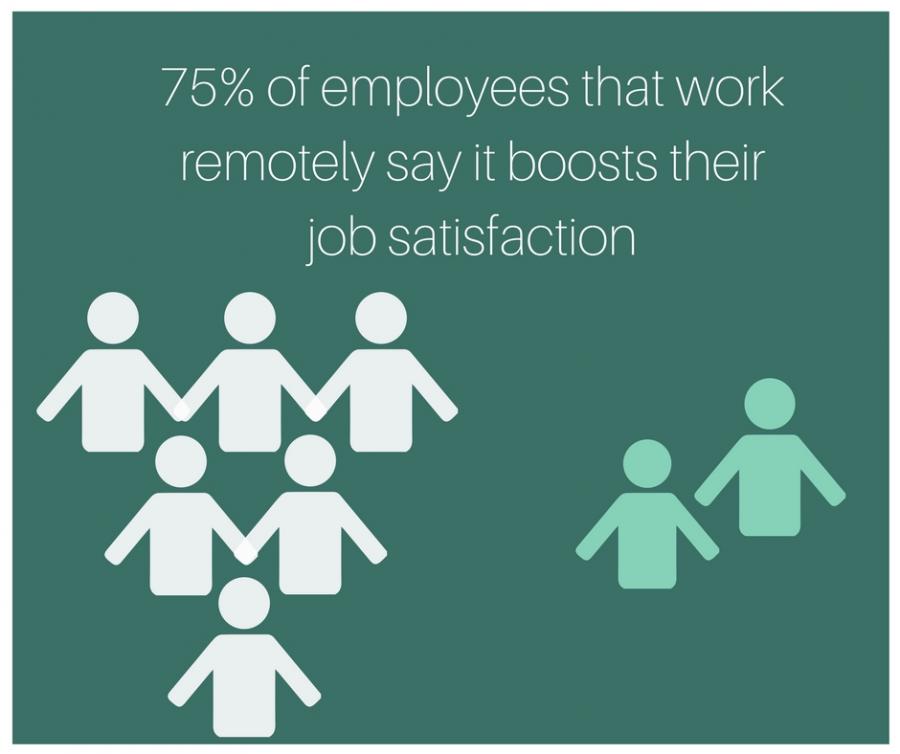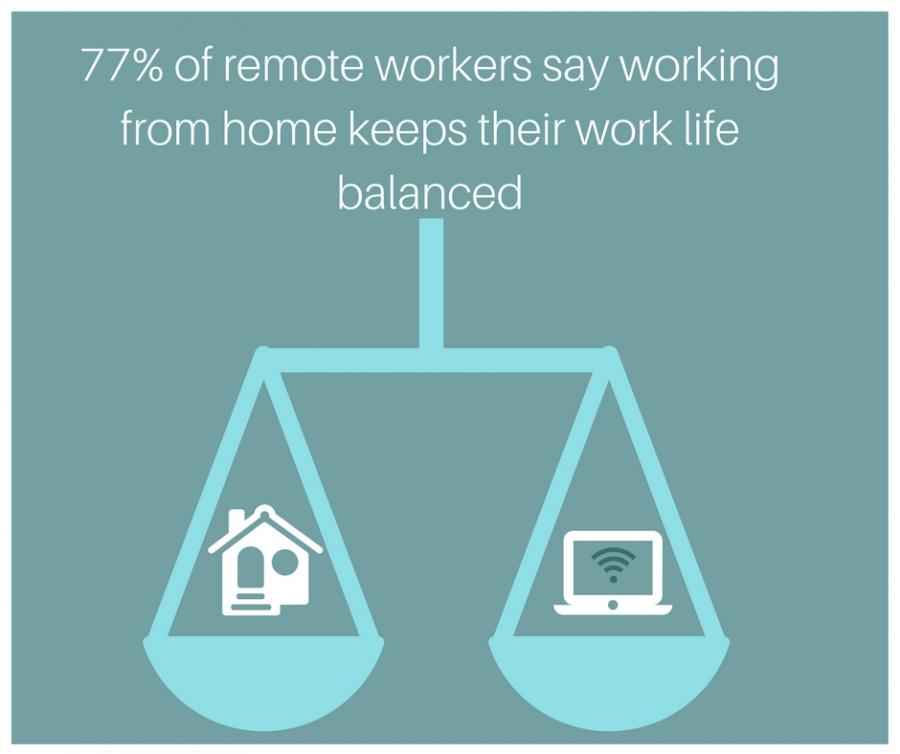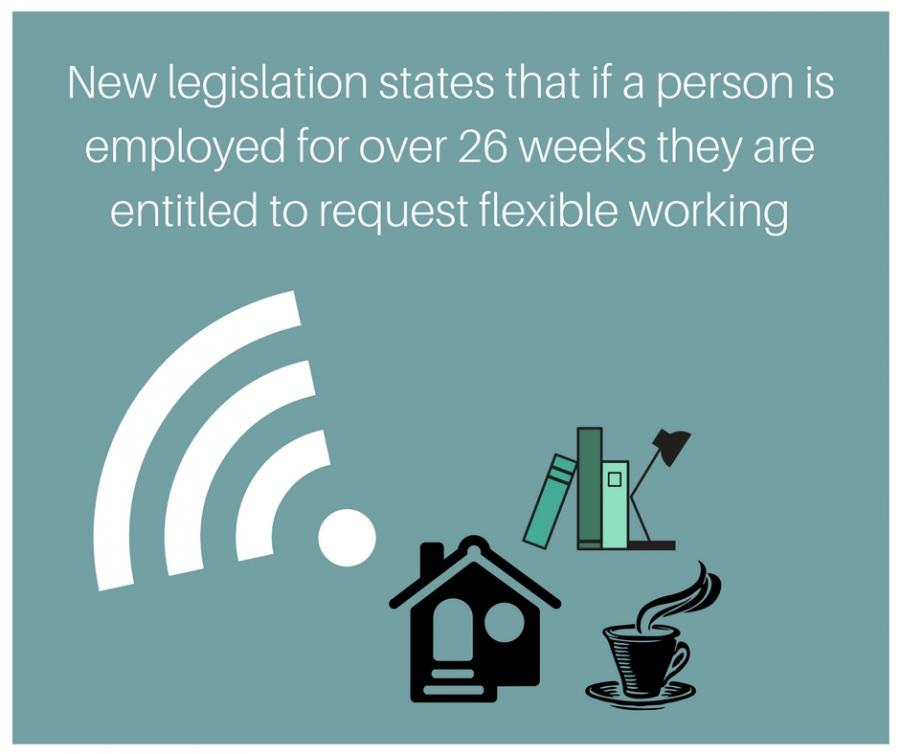Working from Home removes the need to commute and can have significant benefits for both Employees and Employers
Carry on reading to find out more...
Working from home - Employees
Have you ever considered working from home every now and again?
Why not swap the rush of the morning commute for a fresh home brewed coffee on the sofa!

Employee Benefits of Working from Home
Working from Home means you don’t have to waste your time stuck in traffic jams both on the way to or way back from work, allowing you to start your day’s work as soon as you finish your breakfast.

Starting your work day earlier means you can also finish earlier enabling you to make the most of the day:
- Go for that run you can never normally go on because it’s dark when you get back from work
- Make that special meal you never normally have the time to make
- Watch a few extra episodes of your favourite series on catch up
Other benefits of working from home include:
- Saving money that you would normally spend on commuting to and from work
- Reducing the stress of commuting
- Decreased air pollution and traffic congestion in your local area


Working from home – Employers:
Employers, have you ever considered letting your employees work from home?
Examples
- JD Edwards teleworkers are 20-25% more productive than their office counterparts
- American Express workers produced 43% more than their office based counterparts
- Compaq increased productivity 15-45%
- BT’s Anytime Anywhere workers are absent 20 per cent less than the average UK employee

Improve Employee Job Satisfaction...

Allowing your employees to work from home shows you trust them building a sense of empowerment enabling them to be more independent and self-directed which often increases productivity.
Employees also appreciate the flexibility and often show this appreciation by working harder and staying at your organisation longer, increasing employee retainment.


Are you suited to working from home?
Not every job and every person is suited to work from home, although many are.
Whether it’s practical or personal factors, read below for some of the key things you need to consider when assessing whether or not you are suited to work from home.
Practical Factors
Suitable Equipment?
Can your employer provide you with the equipment you need to effectively undertake your work and can you use this equipment efficiently within your home? (E.g. can your employer provide you with a work laptop and work phone and do you have a fast enough internet connection? – Click here to find out if where you live has or will be getting access to Superfast Broadband as part of the Superfast Northamptonshire initiative – hyperlink the words “Superfast Northamptonshire initiative” to the Superfast Northamptonshire page on the website).


Suitable Working Space?
Do you have a dedicated working space in your home that would meet the same health and safety standards as those in your work place and how secure is your internet network at home?
Suitable Documentation?
Are you able to take home all the documents you need to work effectively?
Some employers may not allow any legal and confidential documents to be taken outside of the workplace.

Suitable IT Infrastructure
Does your employer have the suitable IT infrastructure to enable you to work from home? Do you have access to software like Skype for Business (formerly known as Lync), GoToMeeting and Cisco Webex that can enable you to conduct online meetings / group discussions with multiple people? Does your company have remote IT support that can help you in case anything doesn’t work? Can you remotely access all the files and data that you need? Etc…)
Personal factors:

Self-Motivated?
Are you self-directed and self-motivated?
Can you keep yourself focused when you are not being monitored by your colleagues and when they are numerous potential distractions surrounding you?
Work and Personal Life
Can you separate your work and personal life within the confines of your home?
Collaborative Working Requirements?
Does your job require a minimal amount of social interaction and do you mind not talking face-to-face with colleagues every day.
Managing Work
Can you manage your time and work independently?

Right to work from home…
In 2014 the UK Government introduced The Flexible Working Regulations 2014 which means that all employees which have worked for the same employer for at least 26 weeks have the legal right to request flexible working (which includes working from home)*- not just parents and carers.
Click here to find out more details.
*Please note that these regulations are job permitting. These regulations do not apply if your job requires you to physically be somewhere (for instance if you are a postman).

Working from Home Guidance:
Like the sound of the above?
Click the links below to access guidance that can help enable either you or your organisation to start reaping the benefits that working from home can bring…
- Click here to access the Work from Home Wisdom website which details advice relating to all aspects of working from home. From how to avoid the feeling of isolation to reviews of “Work from home products”, the Work from Home Wisdom website is a great for those interested in working from home and for those who are already working from home.
- Scroll to the bottom of the page to download Acas’ “Homeworking – a guide for employers and employees”
- Click here to find out about the process of applying to Work from Home.
- Click here for Her Majesty’s Revenue & Customs’ (HMRC’s) guidance on employee home-working expenses.
- Click here and here to find out details about what taxes you may be exempt from paying by regularly working from home.
- Click here to find out details of the tax, National Insurance and reporting obligations you may have if you’re an employer providing homeworking expenses for your employees.
Summary
Employer Benefits:
- Higher productivity
- Lower real estate and related costs (e.g. building operating costs)
- Reduced absenteeism and turnover
Employee Benefits:
- Lower petrol and auto expenses
- Reduced work-related expenses
- Increased free time
Remember, working from home should not be a full-time replacement for coming in to the office. As the human resources team at Yahoo recently pointed out...



